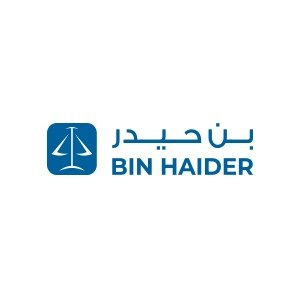Best Reinsurance Lawyers in United Arab Emirates
Share your needs with us, get contacted by law firms.
Free. Takes 2 min.
Or refine your search by selecting a city:
List of the best lawyers in United Arab Emirates
About Reinsurance Law in United Arab Emirates
Reinsurance in the United Arab Emirates (UAE) is a vital component of the insurance industry, enabling insurers to manage risk exposure by transferring portions of risk across multiple parties. The UAE's strategic location, dynamic economy, and increasing demand for insurance products have made it an attractive hub for reinsurance activities. The reinsurance market in the UAE is highly regulated to ensure reliability, transparency, and security within the sector. Entities involved in reinsurance operations must comply with local laws and international standards to operate effectively.
Why You May Need a Lawyer
There are several situations in which individuals or businesses may require legal assistance in the field of reinsurance in the UAE:
- Contract Negotiation: Drafting or negotiating reinsurance contracts can be complex. Legal expertise is crucial to ensure that all terms and conditions are clear, fair, and enforceable.
- Dispute Resolution: Disagreements may arise over contract terms, claims processing, or indemnification. A lawyer can help mediate or litigate these disputes effectively.
- Regulatory Compliance: Legal advice is essential to ensure that businesses comply with UAE regulatory requirements, avoiding fines or legal penalties.
- Claims Handling: Assistance with claims management, including legal interpretation of coverage terms and conditions, ensures fair compensation.
- Business Structuring and Strategy: Lawyers can provide strategic advice on structuring reinsurance arrangements to align with business goals and manage risks effectively.
Local Laws Overview
Reinsurance law in the UAE is governed by various federal laws and regulations, including the UAE Insurance Law and its amendments. Key aspects include:
- Regulatory Bodies: The UAE Central Bank is the main regulatory authority overseeing the insurance and reinsurance sectors, ensuring compliance with legal and financial standards.
- Licensing Requirements: Reinsurance companies must obtain proper licenses to operate in the UAE, following strict criteria regarding financial stability and operational capacity.
- Foreign Participants: The UAE allows foreign reinsurance companies to operate, subject to specific regulatory conditions, promoting a competitive and diverse market environment.
- Capital Requirements: Reinsurance companies must meet minimum capital requirements to ensure financial robustness and the ability to cover potential liabilities.
- Dispute Resolution Mechanisms: The UAE provides legal frameworks for resolving disputes within the reinsurance sector, including arbitration and court proceedings.
Frequently Asked Questions
What is reinsurance?
Reinsurance is a process where insurance companies transfer portions of risk to other insurers or reinsurers to limit their own risk exposure. It helps in spreading risk and stabilizing insurance markets.
Do I need a special license to provide reinsurance services in the UAE?
Yes, companies must obtain a specific license from the UAE Central Bank to operate as a reinsurance provider, meeting certain financial and operational criteria.
How does reinsurance benefit insurers in the UAE?
Reinsurance allows insurers to manage risk exposure, reserve capital, stabilize loss experience, and provide larger coverage limits, enhancing their operational capacity.
Are there restrictions on foreign reinsurers in the UAE?
While foreign reinsurers can operate in the UAE, they must comply with local regulatory requirements, including obtaining necessary approvals and maintaining certain standards.
What legal issues can arise in reinsurance contracts?
Legal issues may include misinterpretation of contract terms, disputes over claims handling, non-compliance with regulatory requirements, or breaches of contractual obligations.
How are reinsurance disputes resolved in the UAE?
Reinsurance disputes can be resolved through arbitration, mediation, or litigation in the UAE's legal framework, depending on the contract's dispute resolution clauses.
What role does the UAE Central Bank play in the reinsurance industry?
The UAE Central Bank regulates the reinsurance sector, ensuring compliance with laws, maintaining stability, and protecting the interests of policyholders and the public.
Can reinsurance contracts be customized according to specific needs?
Yes, reinsurance contracts can be tailored to fit the specific needs and risk management strategies of the involved parties, although they must adhere to legal standards.
What are the common types of reinsurance agreements used in the UAE?
The common forms include facultative reinsurance (individual risk basis) and treaty reinsurance (portfolio basis), each designed for different risk and coverage needs.
How can a lawyer assist in the reinsurance claims process?
A lawyer can provide valuable assistance by interpreting policy terms, advising on compliance issues, negotiating settlements, and representing clients in disputes to ensure fair claim outcomes.
Additional Resources
Here are some resources and organizations that can be valuable for those seeking legal advice in reinsurance:
- UAE Central Bank: The primary regulatory body for insurance and reinsurance activities, providing guidelines and resources.
- Dubai International Financial Centre (DIFC): An international business hub offering dispute resolution facilities through its courts and arbitration centres.
- Emirates Insurance Association (EIA): An association representing insurance companies in the UAE, offering information on industry standards and developments.
- Legal Publications and Journals: Access publications that provide updates on reinsurance laws and regulatory changes in the UAE.
Next Steps
If you require legal assistance in reinsurance in the UAE, consider the following steps:
- Research: Understand the basics of your legal needs and identify areas that require professional assistance.
- Consult Legal Experts: Contact a specialized reinsurance lawyer or a law firm experienced in UAE reinsurance law to discuss your situation.
- Gather Documentation: Collect all relevant documents, including contracts, correspondence, and any evidence of disputes or claims.
- Evaluate Options: With legal guidance, assess your options for negotiation, settlement, or pursuing formal dispute resolution.
- Stay Informed: Continue learning about changes and developments in UAE reinsurance laws to protect your interests effectively.
Lawzana helps you find the best lawyers and law firms in United Arab Emirates through a curated and pre-screened list of qualified legal professionals. Our platform offers rankings and detailed profiles of attorneys and law firms, allowing you to compare based on practice areas, including Reinsurance, experience, and client feedback.
Each profile includes a description of the firm's areas of practice, client reviews, team members and partners, year of establishment, spoken languages, office locations, contact information, social media presence, and any published articles or resources. Most firms on our platform speak English and are experienced in both local and international legal matters.
Get a quote from top-rated law firms in United Arab Emirates — quickly, securely, and without unnecessary hassle.
Disclaimer:
The information provided on this page is for general informational purposes only and does not constitute legal advice. While we strive to ensure the accuracy and relevance of the content, legal information may change over time, and interpretations of the law can vary. You should always consult with a qualified legal professional for advice specific to your situation.
We disclaim all liability for actions taken or not taken based on the content of this page. If you believe any information is incorrect or outdated, please contact us, and we will review and update it where appropriate.
Browse reinsurance law firms by city in United Arab Emirates
Refine your search by selecting a city.

















